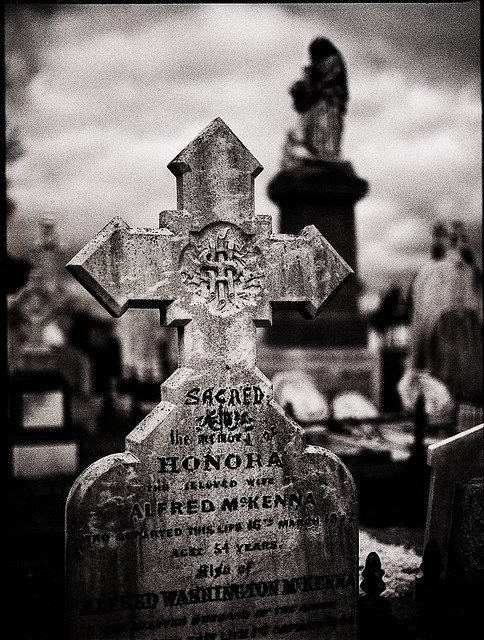Recently, I attended the wake of a friend’s mother.
The woman was in her nineties and my friend had spent the last ten years keeping a close eye on her after the death of his father. He’d been to visit his mother regularly, and had seen her just a day before she died. But he wasn’t with her at the time of death, and he was beating himself up about it. His eyes welled with tears as he whispered to me, “I wasn’t there.”
I could relate.
More than a decade ago, when my mother passed to another realm, I was not at her bedside. For years, this omission haunted me. Though I’d been with her shortly before she was diagnosed with a rare and oft-fatal disease (amyloidosis), I had left her deathbed to deliver my son to his first day of college. During that relatively brief period, my mom passed away, under the loving care of my brother and sister, the latter of whom was a hospice nurse.
What does Paramhansa Yogananda, the Indian guru who brought yoga and meditation to the West in the 1920s and who is the subject of a new film (“Awake”) have to do with this? One night, a few years after my mother’s passing, I was reading for the third time, Yogananda’s extraordinary and bestselling memoir Autobiography of a Yogi.
Suddenly a paragraph popped out at me that I hadn’t focused on before. Yogananda writes, “It has always happened in my life that, at the death of those dearly beloved by me, God has compassionately arranged that I be distant from the scene.” (1) The footnotes state that at the passing of his mother, his beloved Master Sri Yukteswar, his father, his elder brother, his eldest sister, and several close disciples Yogananda was otherwise occupied. Like my friend above (and myself), he just wasn’t there.
Totally MIA.
Overcome by emotion at this realization, I was finally able to relinquish the guilt I felt for not being at my mother’s side in her final hours. The truth is, and deep in my heart I knew, I could not have handled it, and I wouldn’t have been any help to her (as my sister was). I had been with her just a week before, and for the 13 years after my father died I had spoken with her nearly every night on the phone. We were as close as a mother/daughter could be while living three hours apart.
At the time, I was not one to deal well with death (when it came to the “D” word, terror rather than acceptance was my modis operandi). Indeed, it was probably not “coincidence” that my eldest son’s departure for college was on the exact same morning as my beloved mother’s departure from earth.
It’s common for the deceased to pass peacefully, “surrounded by family and loved ones.” And often it seems that this brings comfort to all involved; relatives come scurrying from across the globe to pay final respects, to be present. But until I read Yogananda’s words, it never occurred to me that there might be a reason some of us are denied (or spared) this experience.
Is it possible that my presence at my mother’s deathbed would only have made the profound grief that I held in my heart for many years after her passing, even more unbearable? Is it possible that my presence might have made it more difficult for my mother to leave her anguished body? Or am I just making excuses for my own failure?
In any case, what good does it do to blame ourselves? Yet blame is such a large—and natural–part of death. If only I had taken her to the doctor sooner. If only I had been kinder in the last days. If only we had made her change her diet, kept her off the road that fateful day, stopped him from smoking, reminded him to take his medicine, and on and on ad infinitum.
If only….we had been there.
The wise Yogananda put a new spin on death for me. If one is meant to be there, one will be there—but it’s not always up to us.
This is not the same as getting a pass for negligence, bad behavior or disrespect; rather, it’s an acknowledgment that there are forces at work that we can’t always fathom, that we can only know through trust. Until I read Yogananda’s words, I couldn’t imagine that my absence was anything but a sinful lapse, an act of supreme daughterly failure.
I had never before considered that my absence at my mother’s deathbed might have been pre-arranged, blameless, and borne of Divine Love.
And so I will forever be grateful to Yogananda, whose words helped me let go of my mother, and finally forgive myself.
*
Note:
(1) Autobiography of a Yogi, Paramhansa Yogananda, p. 385 Crystal Clarity Publishers, 2005 reprint.
Love elephant and want to go steady?
Sign up for our (curated) daily and weekly newsletters!
Author: Kathryn E. Livingston
Editor: Renee Picard
Photo: Jes at Flickr







Read 2 comments and reply